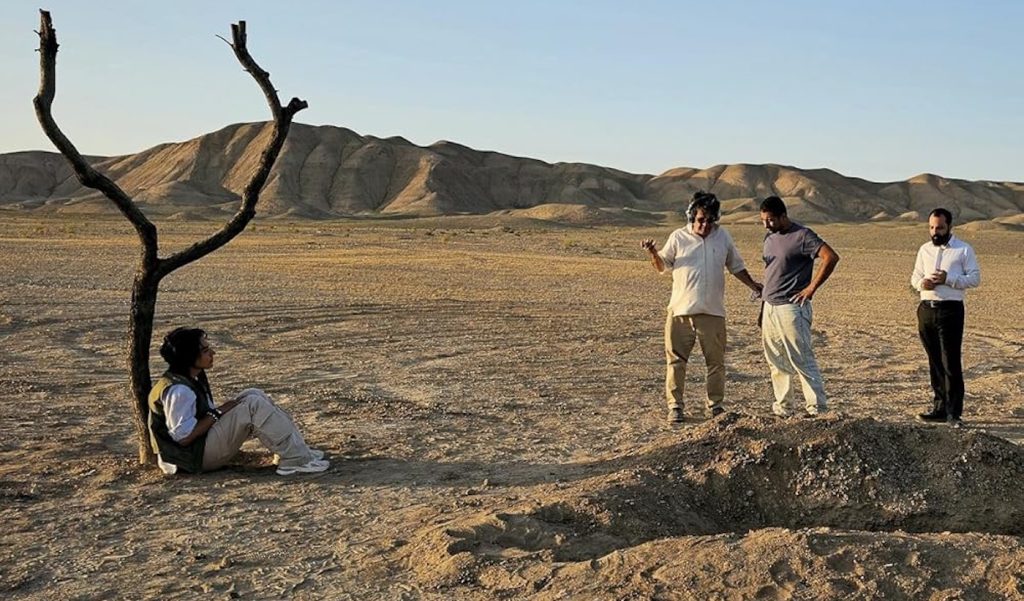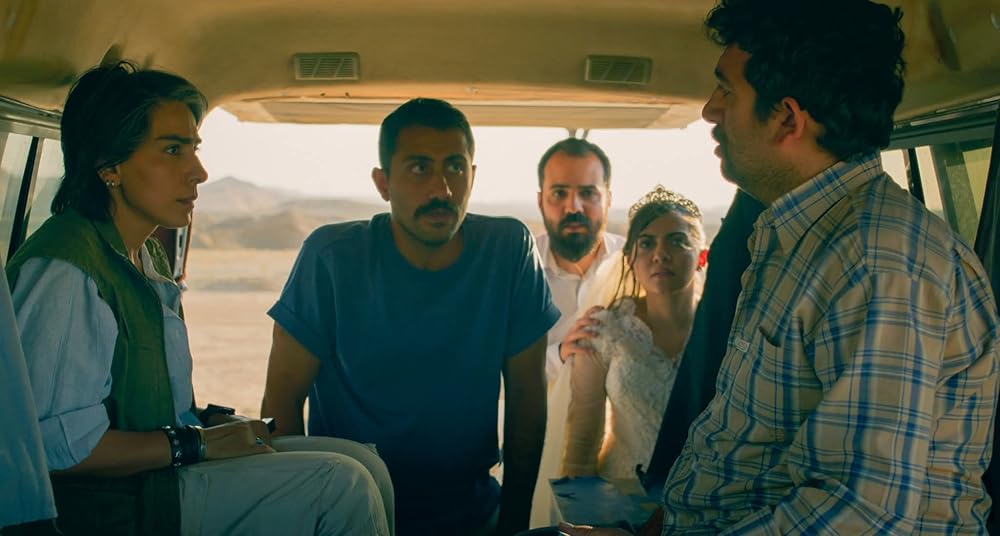Editing in Secrecy: How Amir Etminan Cut Jafar Panahi’s Palme d’Or Winner “It Was Just an Accident”
“When Mr. Panahi called and invited me to meet him, I didn’t ask any questions because I knew the secrecy and the sensitivity of his projects,” picture editor Amir Etminan tells The Credits through an interpreter. “So I accepted the invitation and went to have a conversation in person.” What followed was a discussion of Iranian writer-director Jafar Panahi’s It Was Just an Accident, an unflinching portrait of trauma, moral compromise, and the devastating choices made by those in power.
Winner of the Palme d’Or at Cannes, its roots are drawn from Panahi’s time in prison. In March 2010, he was arrested and accused of “making propaganda against the regime” for an alleged documentary about the disputed 2009 reelection of President Mahmoud Ahmadinejad. 86 days later, Panahi was released on bail from Evin Prison until his hearing date. In December, he was convicted and sentenced to six years in prison, along with a 20-year ban from making films, traveling, or speaking to the press. An appeal a year later was denied, and Panahi had been largely confined to his Tehran home until 2022, when he was arrested again on July 11 for inquiring about Iranian filmmakers Mohammad Rasoulof (The Seed of the Sacred Pig) and Mostafa Aleahmad, who had been detained days earlier. Authorities sought to enforce Panahi’s 2010 conviction, and he would spend seven more months in prison before being successfully overturned by lawyers. After a hunger strike, Panahi was released in February 2023. It Was Just an Accident is a response to his confinement.

“I asked myself what would happen if one of the people I’d met in prison were released and came face-to-face with someone who had tortured and humiliated him? That question triggered a writing process with two screenwriter friends, Nader Saeivar and Shadmehr Rastin,” Panahi says in the film’s production notes. “We began sketching out possible developments, but I quickly realized that what mattered most was the authenticity of the stories about life in prison, and the different ways they can be told. I brought in someone who had spent a lot of time in prison, and who is unfortunately back there again, Mehdi Mahmoudian [a journalist accused of “propaganda against the Islamic Republic”]. He helped with the dialogue, drawing from what actually happens in detention, and how differently people talk about it once they’re out.”
As his previous works – The Circle (2000), addressing Iran’s oppression of women, Crimson Gold (2003), depicting the country’s class divide (which was banned in Iran cinemas) and Offside (2006), a critique on gender inequality – Panahi did not submit It Was Just an Accident to the Ministry of Culture and Islamic Guidance (MCIG) for approval. Believing the script would be denied, it was produced in secrecy.
The film opens on a deserted highway, where a husband (Ebrahim Azizi) drives his wife (Afssaneh Najmabadi) and daughter (Delmaz Najafi), who’s nestled in the backseat. Music plays until he accidentally hits something. An inspection reveals it was a stray dog, damaging the car. He stops at a nearby garage for repair when a worker, Vahid (Vahid Mobasseri), recognizes his voice and the distinct squeaking sound from his prosthetic leg. He believes it to be Eghbal (nicknamed Peg Leg) – a prison officer who blindfolded and tortured him, causing irreversible physical damage. The next morning, Vahid kidnaps the man in hopes of uncovering the truth and more: to bury him in the desert. Doubt sinks in, and Vahid turns to other survivors– all who Eghbal has abused in one form or another – to validate his claim.
Panahi says the characters – Shiva (Maryam Afshari), a traumatized photographer, a bride (Hadis Pakbaten), and groom (Majid Panahi) preparing for their wedding, and a hell-bent former inmate Hamid (Mohamad Ali Elyasmehr) – are fictional but “the stories they tell are based on real events experienced by actual prisoners.”
In uncovering character trauma and mystery surrounding Eghbal, picture editor Amir Etminan approached each arc both as a distinct thread and as part of a larger emotional tapestry. “Each scene had its own rhythm and space, and each character had their own rhythm and tempo in behaving, in acting, and in being filmed. So, Mr. Panahi kind of started the editing process by applying the rhythm of each character while we were shooting,” says Etminan. “So, for example, if we followed a character in a scene, and the scene by itself has its own tempo and rhythm, then imagine two characters crossing each other in one scene, we would decide in that moment which character will be the one who is going to be the reference for the rhythm of that scene. We’d then switch to that rhythm, and everything had to be in order to help the storytelling.”

The film’s final sequence shines a spotlight on its themes, as Vahid and Shiva decide Eghbal’s fate. Etminan mined the moment with a delicate touch, allowing the scene to play out in a seemingly single shot – Eghbal bound to a tree; the devilish red glow from the van’s brake lights filling the screen. “I have to say the film is a humanitarian film. It’s about the human condition. Each character represents a part of the society that was under the oppression of a totalitarian system. So there was a moral responsibility toward those people to see if they are going to forgive or seek revenge,” he says. “And there’s a big question: who has the power? The power is in the hands of the government, which is there to oppress people. But in the film, the power is switched into the hands of the filmmaker, where we could oppress or avenge those characters. But what would be the difference between us as filmmakers and this government as a totalitarian system? In that case, anyone who has power would be the criminal.”

It was Just an Accident is the sixth major project Etminan has worked on with Panahi. Risking his own freedom, the editor cut footage on a 2020 MacBook Air with only 8GB of RAM and 128GB of storage. Additional external SSD cards helped manage the RED Komodo footage, where he worked alone without editing assistance to keep its secrecy. When asked what draws him to the filmmaker, he notes, “The thing that I really like about Panahi’s work is that it’s raw reality. In fact, it’s very raw in relation to reality. Another reason for our long-term collaboration is the fact that his way of narrating is very close to the way that I see the cinema and narration. We have the same vision of treating a subject, and he always works as an independent who sees things differently.”
In an interview with The Hollywood Reporter, Panahi said he no longer faces legal issues and his professional ban has been lifted. But has no plans to make films through MCIG. One can only hope we continue to see his independent vision in the years ahead.
It Was Just an Accident is in select theaters now.
Featured image: A scene from Jafar Panahi’s It Was Just an Accident. Courtesy Neon.



